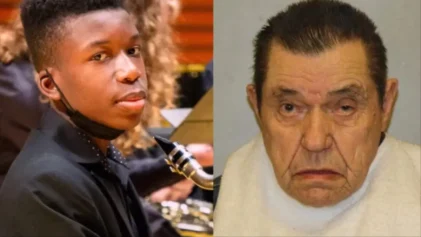White House Press Secretary Karine Jean-Pierre seemed to dance around with her words while answering reporter April Ryan’s questions about President Joe Biden’s stance on reparations for Black Americans on June 14.
The White House press briefing took place the day after the Juneteenth celebration at the White House.
Citing a proposal sponsored each session from 1989 to 2017 by the late U.S. Rep. John James Conyers Jr. and a newer resolution by Rep. Cori Bush for a commission to study and develop reparation plans for African-Americans, Ryan asked, “What does this White House believe when it comes to this controversial issue, repairing a wrong for the descendants of Africans and this nation?”
Jean-Pierre referenced the White House Juneteenth concert in her response and seemingly avoided the question by noting Biden made Juneteenth a national holiday.

“So, look, as you mentioned Juneteenth, there was a concert here yesterday, and we saw how powerful and how moved the President was by the concert and by, uh kind of, the story that was laid out through the concert about Juneteenth and how important that moment was,” she said, before mentioning civil rights activist Opal Lee.
“Opal, as you know, was here, and it’s always moving to hear her and to see her. And — and, as you know, the President signed — signed Juneteenth to be the most recent holiday about two years ago.”
After Ryan tried to interject, Jean-Pierre continued to avoid the reparations question.
“So, I think that shows from that action — I’ll give you more — I think that shows from that action how important the President thinks this moment is, how important he thinks that it’s — it is important to continue to lift up the African American community. And he’ll continue to do so,” Jean-Pierre said.
The White House press secretary went on to say that the administration had not yet reviewed the reparations resolution brought forward by the Democrat congresswoman from Missouri in May, which says that the “federal government must provide reparations to descendants of enslaved Black people and people of African descent.”
“It is time for our government to formally apologize for the state-sanctioned institution of chattel slavery and subsequent anti-Black institutions, laws and practices,” reads the resolution. “And enact a comprehensive and holistic reparations program.”
Bush spoke on the bill during a press conference on May 17 and said slavery continues to impact the lives of Black people in multiple ways such as voter suppression and health care.
“We know how slavery’s impacts live on today, from the Black-white wealth gap, to voter suppression, to segregation and redlining, to disparities in infant mortality rates and other health outcomes,” she said. “Those are not the natural consequences of human society; they are directly caused by our federal government’s role in the enslavement and exploitation of Black people throughout our history.”
The reparations resolution also seeks an apology from the federal government and demands it “provide reparations, in all necessary forms, including financial compensation,” as well as “rectify ongoing harms” against Black people by the federal government.
Jean-Pierre said that she couldn’t speak on the resolution because she hadn’t seen it but added that the president wanted to see a reparations study.
“As it relates to reparations, I — I saw just moments ago the — Cori Bush’s resolution,” said Jean-Pierre. “We haven’t reviewed the proposal yet. It’s a new proposal. So I’ll take a look at it. So I can’t comment on that specifically. But the President has been really clear when it — as it relates to reparation, he wants to see a study of reparations and that — and studying the continuing impacts of slavery. He believes that is incredibly important.”
Ryan asked if Biden would support payouts after the study was completed while noting that paying reparations was a controversial issue, and Jean-Pierre continued to say how important it was for Biden to study the impact of slavery.
“Does the president believe in financial repair for the descendants of Africans in this nation?” Ryan asked.
“So, look, I will say this. We’ve got to let the study move forward. We got to let — see what the study shows,” she said. “And we got to continue to study the impact of sla — slavery. That is something that the President believes that we need to do. So that’s incredibly important.”
Twitter users noted that Jean-Pierre seemed to say a lot without saying much. One user wrote, “She said a whole bunch of nothing!”
Another Twitter user replied, “She speaks gibberish too, huh?”
The Reparations Now Resolution introduced by Bush has been endorsed by hundreds of organizations including but not limited to the National Coalition Of Blacks for Reparations in America, Color of Change, the Rainbow PUSH Coalition, Human Rights Watch, Amnesty International USA, the Japanese American Citizens League and the National Council of Jewish Women.
Biden was encouraged in a letter last February by 365 human and civil rights organizations as well as dozens of activists to create a federal commission to study reparations by executive order by Juneteenth. While the president claims to support studying reparations, he has yet to set up a federal commission.


